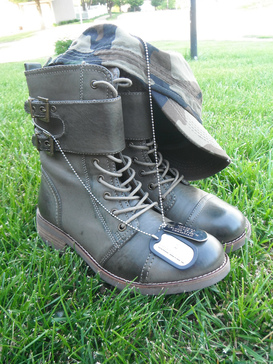 By Karen Carnabucci, LCSW, TEP Years ago, a veteran told me, "I was never really prepared for the reality of war." As a psychotherapist, I often think about his powerful observation when I work with people who have suffered various kinds of trauma. His comment continues to prove true as I hear stories from people who have been affected deeply by trauma, whether war, abuse, crime or a severe accident. There are several realities to the experience of trauma, which we can describe generally as a situation that is a shock to the nervous system of the human being. The experience calls upon all of our resources -- physical, mental, emotional and spiritual -- to survive. After survival, however, the person's injured nervous system continues to feel the reverberations of the event. These after-effects may show up in many ways. Hypervigilance. Keeping highly watchful is an important survival skill in wartime. In ordinary life, however, this watchfulness creates huge problems; the veteran is unable to relax and perhaps may find himself or herself suspicious of others, having difficulty in crowds and certain situations, even close relationships. Unexpected trauma bubbles. Ordinary events, such as seeing an insect crawling up the wall or hearing helicopter noise on a sunny day, can be extremely unsettling. They stir up feelings both consciously and unconsciously that make us erupt in anger and irritability or sink into depression, which cause personal difficulty and problems in relationships with significant others, family members and friends. Although the veteran may sometimes feel "crazy," these are normal responses to the experience of trauma.
Drug and alcohol abuse and addiction. Mood-altering substances may seem to help veterans relax the super-vigilance, stop nightmares of painful image-memories, and numb emotions that may be too difficult to bear or even identify. Use of drugs and alcohol, however, can cause serious physical health problems, and contribute to further depression since alcohol actually depresses the central nervous system and other chemicals play havoc with brain chemistry generally. Addiction, too, can create even bigger problems for the veteran. Many veterans shy away from talking about their experiences or reaching for help because they do not believe help or healing is possible. However, the good news is that healing IS possible, as we are able to understand more clearly than ever before the components of trauma and the needs for true recovery. The first step is to admit that the war experience has affected you, perhaps even in ways that you cannot name. The next step is to reach out for resources that reduce isolation, which in itself causes depression and emotional distress. New scientific research is helping us understand more clearly how traumatic experiences are stored in the body and mind. Therefore, while traditional counseling is important, other means of help are equally valuable. Experiential modes of psychotherapy -- such as EMDR, creative arts therapies and psychodrama -- are extremely helpful in accessing the parts of the brain where trauma memories reside. So are various kinds of bodywork treatments and other modalities. Some veterans have found that regimens of breathing, yoga and energy work, including Reiki, are relaxing and stabilizing -- sometimes reducing physical pain or distress as well as contributing to mental, physical and neurological calming. Psychologist Ed Tick has documented significant healing of veterans in his 2005 book, War and the Soul and the newer Warrior's Return: Restoring the Soul After War that include genuine connections with older veterans and others in the community, Native American ceremony and sweat lodges, storytelling and other non-medical means. Sometimes the best healer is the hope that is generated within a human being by knowing someone who has not only survived trauma but also has found healing and peace.
0 Comments
Your comment will be posted after it is approved.
Leave a Reply. |
AuthorKaren Carnabucci, LCSW, TEP, is an author, trainer and psychotherapist who promotes, practices and teaches experiential methods including psychodrama, Family and Systemic Constellations, sand tray, mindfulness and Tarot imagery. Archives
December 2023
Categories
All
|
 RSS Feed
RSS Feed